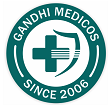What are the Risk Factors and Symptoms of Prostate Cancer?

The prostate is an organ that is present in the male reproductive system. It is situated beneath the urinary bladder, and the urethra goes around the prostate. The main function of the prostate is the proper functioning of the male reproduction system. The prostate gland produces the fluid that makes the semen. Therefore, this gland is said to be one of the most important. With age, the size of this gland starts increasing in size in most males, and in other cases, tumors start forming in the prostate gland.
Symptoms
Several symptoms can be seen with prostate cancer. If you see any of these symptoms, you should see a doctor immediately.
- Interrupted and weak flow of urine
- Pain and difficulty urinating
- Burning sensation while urinating
- Feeling the frequent urge to go to the bathroom
- Back, pelvis, and hip pain for a long time
- Bladder does not empty completely
- Blood in semen or urine
- Painful ejaculation
Risk factors
When it comes to prostate cancer, there is always a certain category categorized as a high-risk group. The high-risk group is more inclined to get prostate cancer. However, in the current medical scenario, if a person gets prostate cancer, there is a high possibility of completely curing.
- Age: Men who are up in age are more at risk of prostate cancer. Men mostly above 50 years fall into the high-risk group. But, in certain cases, prostate cancer can be seen in younger males as well.
- Genetic history: If anyone has a cancer history in the family, the risk goes up. If one’s father, brother, or son has been diagnosed with prostate cancer, the risk also goes high.
- African American: Through various research, it is found that African American men are more at risk of getting prostate cancer than other men.
Also, they are more in number when it comes to prostate cancer in younger men.
Enzalutamide is one of the systematic medications prescribed to patients suffering from advanced level prostate cancer. The medications are prescribed by oncologists and specialists only.


 Anti Cancer Drugs
Anti Cancer Drugs Hepatitis C
Hepatitis C Meds for HIV
Meds for HIV Ayurvedic Medicine
Ayurvedic Medicine Transplant Medicine
Transplant Medicine Respiratory System
Respiratory System +91-9999064250 / 9811604424 / 9811604444
+91-9999064250 / 9811604424 / 9811604444
 8(800)100-47-90
8(800)100-47-90












